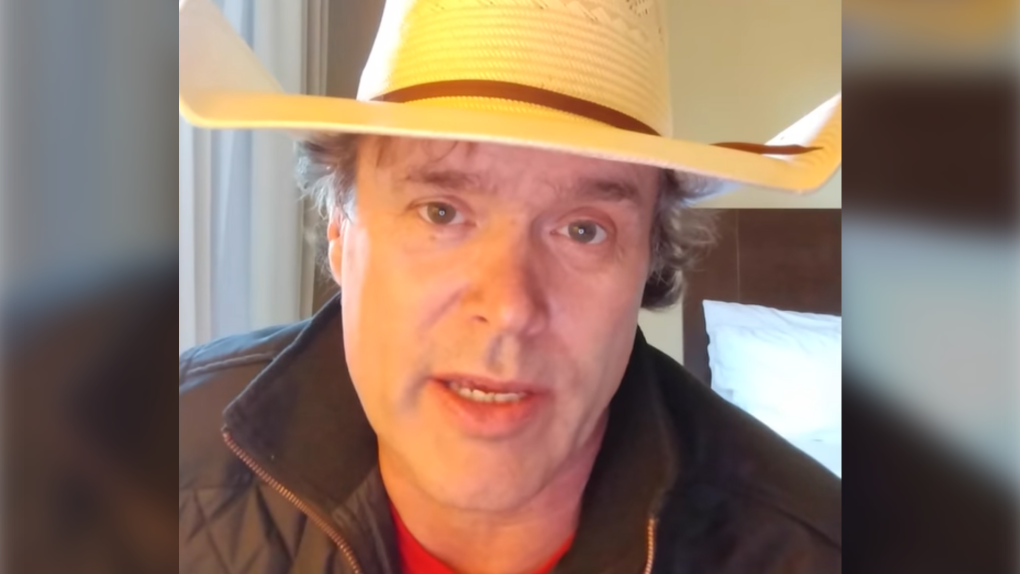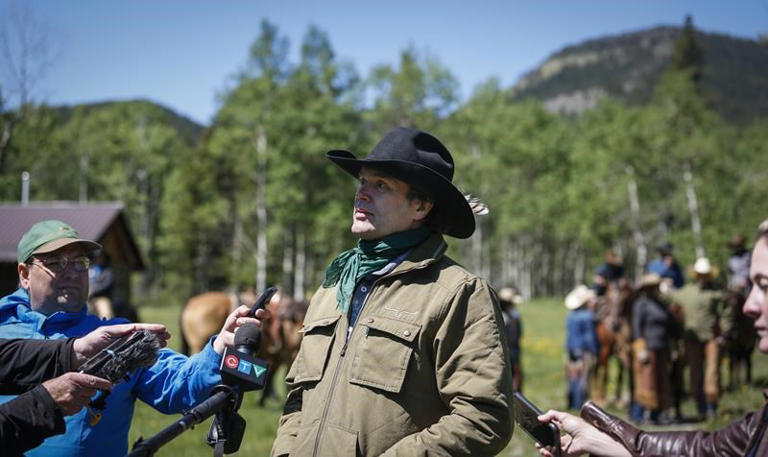EDMONTON — When Alberta country singer Corb Lund wrote a song 12 years ago about a rancher determined to defend the landscape he loves against encroaching development, it was just a campfire yarn

"It was just kind of a story, a fictional story," Lund said.
Events have since caught up to the tune "This Is My Prairie." The summits and foothills of Alberta's Rocky Mountains have been leased along a vast stretch of their range for coal exploration and a series of companies have announced plans for open-pit mines.
Lund's imagined defender was suddenly very real.
"This coal thing happened and I looked at (the song) and it was just word for word," Lund said from his home in Lethbridge, downstream from the proposed mines.
"It occurred to me that this might make a good reissue and then it occurred to me that maybe we should recruit a few more people. I called up some people who had been supporting me on Twitter and they were all for it."
Lund, together with a posse of pals, have re-recorded and re-released the song as what Lund hopes will become an anthem of opposition to mining development in the Rockies.
Fellow country stars Terri Clark, Brett Kissel and Paul Brandt joined in. Cree-Dene singer Sherryl Sewepagaham also sings a verse in Cree.
"They can drill, they can mine, over my smouldering bones," the song opens. "This is my Prairie, this is my home."
Lund hasn't been shy about his opposition to the mines, speaking out on social media and in news interviews. Apart from mining's impact on the area's beauty, he's concerned about its effect on water supplies and contamination in a perennially dry region.
"It's important that we stress this is a non-political issue. This is a water issue. Rural people are upset, First Nations people are upset, urban people are upset. This is very wide-ranging."
Lund, who promised any revenue from the re-release will be donated to grassroots groups opposing the mines, said while the public controversy about the developments may have subsided, the fight hasn't ended.
"It's hard to keep the public engaged. There hasn't been a lot of things in the news. One of the main things about releasing this now is that we have to remind people that this is far from over."
The province is waiting on a report from a panel that has spent the last several months hearing from Albertans about how — or if — coal mines should be allowed near the headwaters of most of the province's drinking water. That panel is expected to deliver its report to Energy Minister Sonya Savage on Nov. 15.
The head of that panel, Ron Wallace, said this week that most of the submissions are "strongly opposed" to mining.
Nobody will be keener to see the panel's recommendations than the musicians of "This Is My Prairie."
"We're going to insist that we see those," said Lund. "If the government thinks they can take those recommendations and put them on a shelf, we're going to be squawking about that."
This report by The Canadian Press was first published Oct. 20, 2021.
— Follow Bob Weber on Twitter at @row1960
Bob Weber, The Canadian Press
Oct 19, 2021
Corb Lund
Official video for "This Is My Prairie" by Corb Lund featuring Brett Kissel, Terri Clark, Sherryl Sewepagaham, Paul Brandt, Armond Duck Chief, Katie Rox and Brandi Sidoryk (Nice Horse). Stream/






/https://www.thestar.com/content/dam/thestar/news/canada/2021/08/15/how-his-plan-to-open-the-canadian-rockies-to-coal-mining-set-albertas-jason-kenney-against-country-music-stars/_1_corb_lund.jpg)
/https://www.thestar.com/content/dam/thestar/news/canada/2021/08/15/how-his-plan-to-open-the-canadian-rockies-to-coal-mining-set-albertas-jason-kenney-against-country-music-stars/paul_brandt.jpg)
/https://www.thestar.com/content/dam/thestar/news/canada/2021/08/15/how-his-plan-to-open-the-canadian-rockies-to-coal-mining-set-albertas-jason-kenney-against-country-music-stars/jason_kenney_2021_stampede.jpg)
/https://www.thestar.com/content/dam/thestar/news/canada/2021/08/15/how-his-plan-to-open-the-canadian-rockies-to-coal-mining-set-albertas-jason-kenney-against-country-music-stars/brett_kissel.jpg)






 T
T